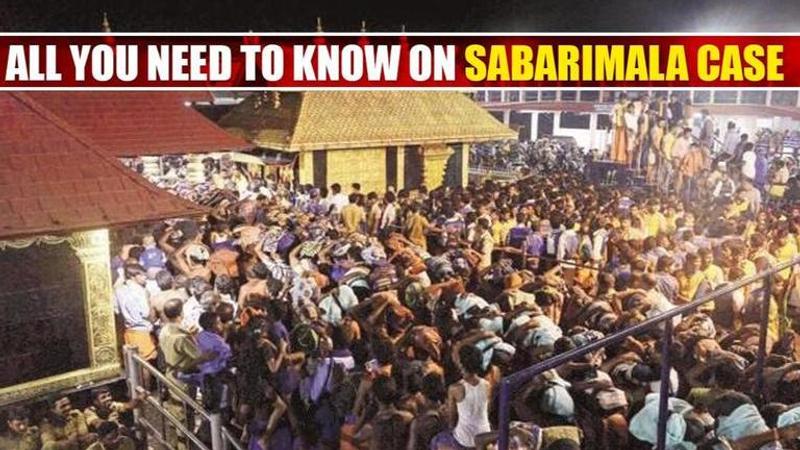Published 12:16 IST, November 14th 2019
SC refers Sabarimala review pleas to 7-judge bench: Here's all you need to know
Pronouncing the verdict on the review petitions of Sabarimala, the Supreme Court on Thursday referred the case to a larger SC bench

After the historic verdict of Ayodhya land dispute case, and a landmark verdict of bringing the CJI's office under RTI, the top court on Thursday gave the verdict on Rafale Review petitions, Sabarimala review petitions, Congress leader Rahul Gandhi's contempt of court case. However, a Delhi court postponed the hearing of the sensitive Muzaffarpur Shelter Home case as the lawyers are on Strike post-Tis-Hazari incident.
SABARIMALA REVIEW VERDICT BY SC
Pronouncing the verdict on the review petitions of Sabarimala, the Supreme Court on Thursday referred the case to a larger SC bench. While pronouncing the verdict, CJI Ranjan Gogoi said that the idea behind the review petitions was to revive the debate as to what is an integral part of a religion. CJI observed that all religious groups have a right to practice their religions freely. He said the debate about the constitutional validity regarding entry of women into places of religious worship is not limited to this case and said that it is also is seen in cases where women are not allowed to enter the Dargah. In light of no alternate verdict from the top court, the previous judgement by the top court allowing entry of women stays in place.
READ: Sabarimala review pleas kept pending by Supreme Court; matter referred to a 7-judge bench
The CJI added that it’s time the top court evolves a judicial policy to do complete justice to constitutional principles. The top court highlighted that the issues arising in the Sabarimala case and regarding Muslim women and Parsi women may be overlapping. Then the Court referred the case to a 7-judge bench. The Court said that the larger bench would go beyond the issue of Sabarimala and would consider practices of all faith.
What was the review petition on Sabarimala Verdict?
The review petition has been filed by Travancore Devaswom Board, Pandalam Royal Family and group of devotees against apex court's September 28, 2018 verdict. Around 56 review petitions and some fresh writ petitions were filed challenging the verdict. The top court had heard the review petitions and writ petitions in open court before reserving its verdict on February 6 this year. Before the retirement of CJI Ranjan Gogoi, had to pronounce the verdict.
What was the Supreme Court's Sabarimala verdict last year?
In a historic verdict last year, the Supreme Court ended the centuries-old practice and allowed women of all ages to enter Sabarimala temple. The 4:1 judgment of the Supreme Court upheld women's right to worship Lord Ayyappa in Sabarimala. While terming the ban on women in the age group of 10 to 51 as religious patriarchy, the then CJI Dipak Misra declared the discriminatory act as unconstitutional and violative of fundamental rights. The then CJI Misra while pronouncing the judgment also said that women can't be suppressed on the basis of biological aspects and that the same can't get a seal of legitimacy. Justice Indu Malhotra pronounced the dissenting judgment in the case and said it’s not up to the courts to decide if such religious practices should be struck down and that rationality has no place in matters of faith.
Updated 12:50 IST, November 14th 2019




